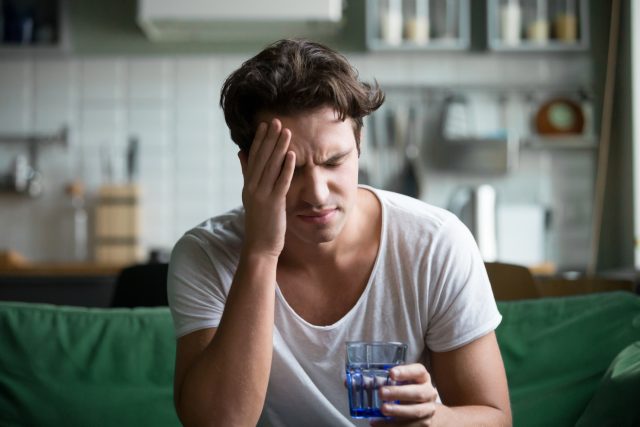This website uses cookies so that we can provide you with the best user experience possible. Cookie information is stored in your browser and performs functions such as recognising you when you return to our website and helping our team to understand which sections of the website you find most interesting and useful.
Has ‘long Covid’ made hangovers more brutal?
People with ‘long Covid’ could be more likely to suffer from extreme hangovers, according to a new study.

The discovery, which was published in the journal Cureus, had involved patients being recruited from the Post-Acute Covid Syndrome clinic (PACS) at Stanford University, which treats people with persistent symptoms of Covid.
As part of the study, researchers began to notice a correlation between people who had lingering symptoms of Covid were all also reporting even worse hangovers than usual.
One example involved a woman who had said she had suffered from long Covid for 11 months who claimed that wine now left her with a “bad hangover” and like she “cannot move”.
Similarly, another woman, who had symptoms of long Covid for three months, reported that she now can’t even manage one cocktail during a night out and described the results as “alcohol poisoning” leading to a three-day headache that leaves her feeling “terrible”.
One man in his sixties who said he had previously consumed alcohol without any issues also reported that he was unable to have even one beer without feeling the effects. According to the study, Long Covid had left him suffering from symptoms headaches, cognitive impairment and sleep disturbances for five months.
Describing the man’s new sensitivities, researchers noted: “The patient experienced, chronic, daily, headaches characterised by a squeezing sensation at the top and back of the head.”
Another woman involved in the study said that she had been suffering from long Covid for a year and old doctors that prior to getting Covid she drank socially, but that now just one drink leads to ‘flushing’ of her skin, something she had not experienced beforehand.
Following the results, the researchers summarised that “new-onset alcohol reactions and sensitivity can occur after Covid infection in patients with [long Covid]”.
The researchers warned that the reason for this could be that the virus and inflammation in the body might weaken the blood-brain barrier which could lead to more severe hangovers due to alcohol being able to enter the brain.
The brain-blood barrier is reportedly a semipermeable membrane that separates circulating blood from the brain fluid and central nervous system. In normal cases, when drinking alcohol, the barrier can become more permeable allowing substances that are normally restricted from entering the brain to reach it.
However, the research scientists hypothesised that a person with long Covid may have more inflammatory molecules in their bloodstreams — something which could potentially lead to worse hangovers.
Despite the findings, scientists said more studies were needed and highlighted how all of the results were self-reported, with patients having not being required to prove their previous Covid infection nor their symptoms after drinking.
However, they did conclude that the findings still identified that there may be a link between Covid and experiencing problems drinking alcohol afterwards.

